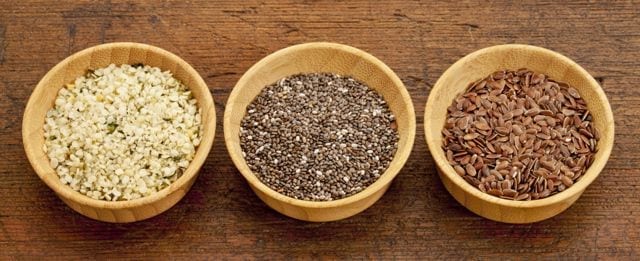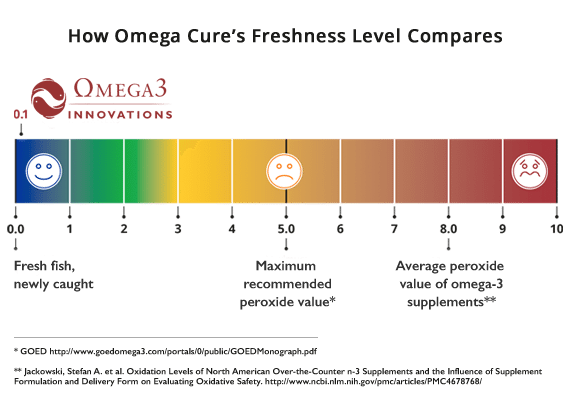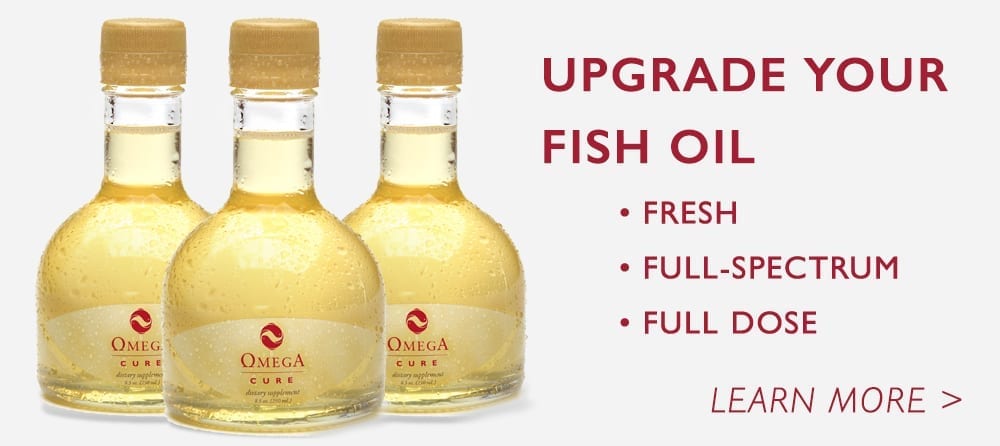Omega-3 Supplements Not Working? This Is Why!
Every Saturday morning, when we set up our booth at the farmers’ market, we hear the same thing: “I already take omega-3 supplements, but I don’t really feel or see any difference in my health.”
With new research studies appearing daily about the benefits of omega-3s for people’s heart, joints, brain, eyes, skin, fertility and metabolism, you’d think that this country would be healthier than ever. So why don’t people experience the benefits they hear about on the news?
The next time you head down the supplement aisle, ask yourself the following questions:
Where Does the Omega-3 Come From?
While fatty fish and fish oil are the most common sources of omega-3 supplements, flaxseed, walnuts and other plant products also are popular omega-3 sources. Whether the omega-3 is marine based or plant based makes a tremendous difference for the consumer.
The main workhorses of the omega-3 family are EPA (eicosapentaenoic acid) and DHA (docosahexaenoic acid), which are found predominantly in fatty fish. The vegetable source of omega-3s (ALA or alpha linolenic acid) does not have the same molecular structure as the long-chained fatty acids, meaning that the body has to convert the ALA into the more effective EPA and DHA. In that conversion process, only a small percent of the ALA ever changes into the EPA and DHA.
In a nutshell: You’d have to consume a cup of flaxseed to equal the nutritional power of one teaspoon of EPA that you naturally get in fish oil.
Flaxseed does contain omega-3 fatty acids, but only ALA.
Most research has been conducted using the EPA and DHA omega-3s found in fish and fish oil.
Omega-3 Fish Oil Is Heart Healthy
The American Heart Association states that only the omega-3s from fish are effective in reducing elevated triglyceride levels and lowering the risk of heart disease. Flaxseed and walnuts contain wonderful nutrients, but it is only marine-based EPA and DHA that have the right molecular flexibility and anti-inflammatory muscle to give you the real bang for your buck.
How Much Fish Oil Should I Take Per Day?
Many people take one capsule containing 1,000 mg of fish oil, thinking they are getting enough of their daily omega-3 requirements. However, the dose used in almost all worldwide research studies showing results ranges from 2000 to 4000 mg of EPA/DHA per day. That is equivalent to taking 7 to 13 regular capsules of fish oil!
Why Are EPA and DHA Levels Important?
Be aware that fish oil and omega-3 are not the same thing. Fish oil contains only a certain percentage of omega-3s, so the best way to be sure of the EPA/DHA dose you are taking is to check the nutrition facts on the back of the product.
Doses can also vary depending on the user’s gender, age, genetics and health conditions. For instance, rheumatologists often recommend that patients take 3000 mg of EPA/DHA for reducing joint stiffness. Reducing elevated triglyceride levels may take between 2000 to 4000 mg of omega-3s.
How Fresh Is Your Fish Oil?
In the omega-3 business, freshness equals potency. As the oil goes bad, or ‘oxidizes,’ the EPA and DHA content in the oil decreases. Yet in spite of the potency and safety concern, many omega-3 companies cover up the smell and taste of rancid oil by encasing their oil in thick gelatin capsules, or by adding substantial amounts of flavoring to their products.
Open up your capsules and see what the product is really like. Remember: fresh fish doesn’t smell or taste fishy. If your omega-3 supplement tastes fishy or sends you ‘urpy’ reminders throughout the day, you can be sure it isn’t fresh.
How Do I Find Fresh Fish Oil?
You can also search online or look at the product to see if there is any mention of a peroxide or anisidine value, two common measurements for assessing freshness.
For instance, Omega3 Innovations’ Omega Cure® has a peroxide value between 0.1 – 0.5 meq/kg at the time of bottling, making it about 80 times fresher than your typical fish oil capsule. The oxidation values (along with the bottling date) are printed directly on every bottle.
 How Long Does It Take for Fish Oil to Work?
How Long Does It Take for Fish Oil to Work?
Experiencing benefits of your omega-3 supplements is more like a long-term relationship than a one-night stand. It takes a good three to six months for the omega-3 fatty acids to work their magic, although you may notice subtle changes in your mood, skin, and hair within the first few weeks. More dramatic results (like reduced joint pain and stiffness) typically take closer to three months.
Real change takes time and commitment, which is why we offer Omega Cure as part of a subscription program. With the subscription program, it has never been easier to incorporate an omega-3 fish oil supplement into your daily routine.
Popular posts



Related posts







 How Long Does It Take for Fish Oil to Work?
How Long Does It Take for Fish Oil to Work?
